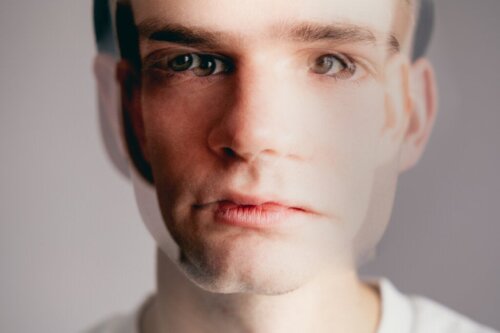The dark triad personality traits are narcissism, psychopathy, and Machiavellianism. These individuals are highly conflictive in their interpersonal relationships. Moreover, they find it difficult to identify their feelings, since they either completely lack or possess little empathy. In addition, this type of personality tends to be incapable of doing anything altruistically in order to make others feel comfortable and at ease. In fact, they exhibit deficits in prosocial behavior.
Recently, the Center for Research in Health Technologies and Services (Portugal) conducted a study. It analyzed the relationship between the dark triad personality and moral decision-making. Before discussing this study, we’re going to define the dark triad personality and take a look at what constitutes a moral decision.
“The lion cannot protect himself from traps, and the fox cannot defend himself from wolves. One must therefore be a fox to recognise traps, and a lion to frighten wolves.”
-Machiavelli-
The dark triad
For years, experts have known that there are three factors that, when combined, give rise to a darker type of personality. This is known as the dark triad. Delroy Paulhaus and Kevin Williams developed this concept in 2002. They defined the characteristics of each component as follows:
1. Narcissism
This personality trait alludes to a subclinical dimension. Although the trait may be obvious, it’s far from severe enough to warrant a diagnosis of narcissistic personality disorder.
We can explain narcissism with a metaphor. Imagine a tightrope walker who’s walking way up on the highwire. This is how narcissistic people go through life. On one side of the wire, they show themselves to be grandiose, deserving of the highest esteem and the greatest admiration. However, on the other side, they’re individuals with extraordinarily vulnerable self-esteem.
Narcissism is a process whose goal is self-construction. The narcissist’s engine is the need for self-affirmation.
2. Machiavellianism
The main characteristic of Machiavellianism is cynicism. The Cambridge Dictionary defines cynicism as “the belief that people are only interested in themselves and are not sincere” and “the act of using someone’s feelings or emotions to your own advantage”.
People who obtain high scores in cynicism are characterized by the absence of principles or values. For them, the important thing is the end result and what they want. Therefore, cynical people manipulate other people as a means to their own ends.
“Cynical people believe in interpersonal manipulation as the key to success in life, and they behave accordingly.”
-Fernando Renee González-
3. Psychopathy
Psychopaths possess antisocial personality traits. They’re characterized by being insensitive and cold to the needs of others. In addition, they find it difficult or even impossible to connect emotionally with those around them. In fact, their capacity for empathy is damaged.
Consequently, they’re cold when making decisions and they act impulsively. Violating social norms doesn’t bother them in the slightest. It’s for this reason that, when they come into contact with society, sparks often fly. After all, for them, conflict is the norm instead of the exception.
“Psychopathy is characterized by having low levels of kindness and responsibility.”
-Fernando Renee González-
Moral decisions
Moral decisions are the paths you follow when you reason about something with the aim of discerning whether the solution is correct or incorrect from a moral point of view. They’re usually studied using social dilemmas.
Social dilemmas can be classified into three broad areas:
- Personal. They allude to behaviors likely to directly cause serious damage to an individual or a group.
- Impersonal. Behaviors that indirectly affect someone.
- An absence of moral evaluation. Alternative behaviors in the context of the absence of harm.
The decisions you make in moral dilemmas can be utilitarian or non-utilitarian. Utilitarian decisions seek the good for the greatest number of subjects involved in the dilemma, even if this implies causing harm to some of them. For example, if one person dies but two are saved in the process. On the other hand, non-utilitarian decisions imply that no one will get hurt after the valuation process.
“People often make utilitarian decisions in non-moral dilemmas. While, faced with personal or impersonal dilemmas, decisions tend to be non-utilitarian.”
-Fernando Renee González-
Stress: a factor that relates to the dark triad and moral decisions
Emotional oversaturation has an impact on moral dilemmas. In effect, when a stimulus appears from a context that’s superior to your coping capacity, you experience stress.
Under conditions of stress, your ability to reason and make decisions about moral dilemmas suffers. This occurs intensely in conflicting moral situations and in people with dark triad personality traits.
“Stress inhibits the cognitive control necessary to stop emotional and automatic responses.”
-Fernando Renee González-

Alterations in social cognition
Under stressful conditions, individuals with dark triad personality traits present deficits in their social cognition. Social cognition refers to the way we operate, transform, and process information related to other people. The study we mentioned earlier suggests that those who possess these personality traits tend to make a greater number of utilitarian decisions. This is because harming others is unimportant to them so long as they can achieve maximum benefits.
As a rule, moral dilemmas generate high levels of emotional oversaturation. In turn, this generates stress. In people without dark triad traits, emotional stress inhibits their utilitarian moral decision-making. However, people on the dark triad have a certain degree of insensitivity to this emotional stress. Consequently, they tend to make utilitarian moral decisions.
As we mentioned earlier, dark triad personalities view the means by which they achieve an objective as immaterial as long as they achieve it. The ineffectiveness of empathy plays an important role in their emotional insensitivity. In fact, they behave in a narcissistic and Machiavellian way if it’s suggested that, in order to ‘win’, someone has to get hurt.
“The preference for utilitarian decision-making may also arise from decreased concern for morality that has sometimes been attributed to people with high dark triad traits.”
-Fernando Renee González-
The post How the Dark Triad Personality Makes Moral Decisions appeared first on Exploring your mind.



















Comments